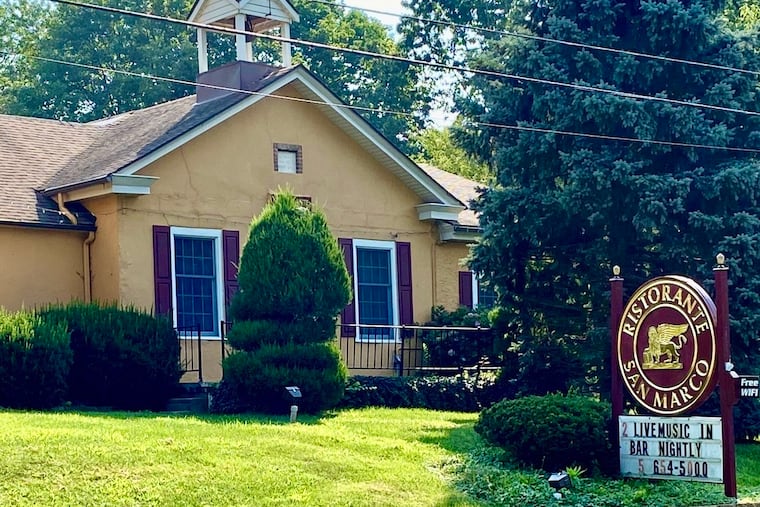Former owner of historic Ambler restaurant sentenced to prison for bilking COVID bailout funds out of nearly $1 million
Josephine Leone, 62, shuttered her restaurant at the start of the pandemic and never reopened, leaving employees in the lurch while she received three separate injections of government cash.

The owner of a defunct historic dining spot in Ambler was sentenced to more than a year in federal prison Tuesday for stealing nearly $1 million in pandemic relief funds meant to help keep struggling businesses afloat.
Instead, prosecutors said, Josephine Leone shuttered Ristorante San Marco — the white-tablecloth northern Italian restaurant on Bethlehem Pike that she ran with her husband — in March 2020, as statewide shutdowns crippled the rest of her industry.
And she never reopened it — leaving employees to survive on unemployment — while she applied for and received three separate government-backed loans and grants meant to sustain her business, even as she was finalizing a $1.6 million sale of the 1860s stucco building that housed it.
“In a time of national crisis, when the government was reaching out to businesses and workers in need, Mrs. Leone took advantage of those programs and … none of her employees benefited,” U.S. District Judge Gerald A. McHugh said as he sentenced Leone to 21 months behind bars.
He continued: “She held that money, and she held it for more than a year while other businesses struggled and closed.”
Leone, 62, apologized to the court and her family shortly before the judge announced her sentence. She noted she has since repaid the more than $972,000 she had fraudulently obtained between April 2020 and May 2021.
But she never once acknowledged her former employees, some of whom told the court they had struggled with periods of unemployment, or the thousands of other worthy restaurant owners across the country who had been shut out of some of the programs from which she benefited.
“I deeply regret my conduct not only because it was the wrong thing to do,” she told the judge, “but also because of the immense anguish and heartache it had caused me … and those who have supported me throughout my life.”
Last year, the Inspector General’s Office for the U.S. Small Business Administration estimated that more than $64 billion issued through the pandemic-era Paycheck Protection Program went to recipients who were not eligible to receive it or spent it on unauthorized expenses.
Leone twice applied for such loans after shuttering her business and pledged that the money would go toward keeping her restaurant workers paid. Instead, prosecutors said, she transferred the funds to other bank, credit card, and investment accounts in her name.
She sought an additional $700,000 from the Restaurant Revitalization Fund, a federal program specifically aimed at supporting the restaurant industry through pandemic closures, even after Ristorante San Marco’s building had been vacated in preparation for its sale.
In a letter to the court, the Small Business Administration stressed that frauds like Leone’s had contributed to thousands of otherwise eligible restaurants being shut out of receiving money that could have sustained their businesses.
“Two thirds of eligible applicants were denied funding requests, making those who did receive awards truly fortunate,” it read.
Prosecutors did not say Tuesday how Leone spent the money but described her as “wealthy” independently of her restaurant and noted she took luxury trips to places like Dubai, United Arab Emirates; France; Alaska; and Cancún and Punta Cana, Mexico, during the pandemic while her employees were struggling financially.
Leone’s attorney, Michael J. Engle, maintained that she had applied for the loans for her restaurant, despite the pending sale of the building that housed it, because she planned to reopen the business if the deal fell through.
It did not and was finalized for $1.3 million in June 2021, less than a month after Leone received her last injection of government cash. It now houses Tresini, an upscale Italian eatery run by chef Brad Daniels.
Engle said Tuesday that Leone recognized the severity of her misdeeds and had done what she could since to make amends.
“There was uncertainty in life, in general, at that time,” he said. “She did things she deeply regrets. But what she did here was not the norm for the other 62 years of life she’s experienced.”